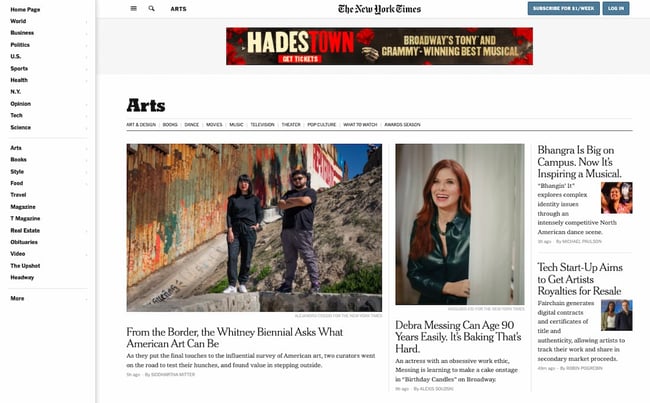News Websites - The Facts
Table of Contents6 Easy Facts About News Websites DescribedThe smart Trick of News Websites That Nobody is Talking AboutSome Known Questions About News Websites.News Websites - QuestionsThe Greatest Guide To News Websites
It was down in the UK and Brazil yet up a few other nations, such as Greece, Bulgaria, and Poland (News Websites). This year, for the very first time, we inquired about the different methods that individuals stay clear of the news and discovered that around half of avoiders (53%) were attempting to do so in a broad-brush or routine means for instance, by turning off the radio when the news came on, or by scrolling past the news in social media sitesYou claimed that you try to proactively prevent information.

I'm most likely choosing to review more light-hearted stories than I made use of to at the moment. M, 51, UK Switching my back on news is the only means I feel I can deal in some cases. I need to knowingly make the initiative to turn away for my very own mental wellness.
How News Websites can Save You Time, Stress, and Money.
Selective avoidance of Ukraine information was highest possible in most of the nations closest to the conflict, strengthening searchings for from our additional survey in 2015, quickly after the war had started. Our information might not suggest a lack of passion in Ukraine from neighboring countries but rather a need to manage time or safeguard psychological wellness from the really real scaries of battle.
Contrasting Finland with a politically polarised nation such as the USA (see following graph) that is less impacted by the battle, we locate a really various pattern of subject avoidance. In the United States, we find that consumers are more probable to stay clear of topics such as nationwide politics and social justice, where debates over issues such as gender, sexuality, and race have become extremely politicised.
American politics are quite harmful these days. I find often that I need to detach from stories that just make me angry. F, 61, United States For some people, bitter and divisive political arguments are a reason to shut off news completely, however for some political partisans, avoidance is commonly about shutting out perspectives you do not desire to hear.

The 2-Minute Rule for News Websites
Some are looking to make information more accessible for hard-to-reach teams, widening the news agenda, appointing more motivating or favorable news, or welcoming useful or remedies journalism that provide individuals a sense of hope or personal agency. In our study this year, we asked participants about their rate of interest in these different techniques.
This discusses why tales like Ukraine or national politics carry out well with information regulars but can at the exact same time turn less interested individuals away (News Websites). Discerning avoiders are less thinking about all sorts of news than non-avoiders yet in relative terms they do seem to be a lot more interested in positive or solutions-based information

The smart Trick of News Websites That Nobody is Talking About
2023). This may hold true in the moment, yet over time it seems to be leaving lots of people vacant and less pleased, which might be threatening our connection with and count on in the news. Across markets, overall count on in news (40%) and trust in the resources people utilize themselves (46%) are down by an additionally 2 percentage factors this year.
Via the rear-view mirror, the COVID-19 depend on bump is clearly noticeable in the complying see it here with chart, though the instructions of travel after that has actually been mixed. In many cases (e.g. Finland), the trust fund rise has been preserved, while in others the upturn looks more like a blip in a tale of ongoing long-lasting decrease.
A few of the highest reported degrees of media objection are located in nations with highest degree of distrust, such as Greece, the Philippines, the United States, France, and the UK. The most affordable levels of media objection are frequently in those with greater degrees of trust fund, such as Finland, Norway, Denmark, and Japan.
The Greatest Guide To News Websites
This year we asked participants concerning their preferences internet for message, audio and video clip when taking in information online. Usually, we locate that the bulk still prefer to read the information (57%), as opposed to watch (30%) or pay attention to it (13%), however younger people (under-35s) are most likely to pay attention (17%) than older teams.
Behind the averages we discover considerable and shocking nation distinctions. In markets with a solid analysis practice, such as Finland and the UK, around eight in ten still prefer to review online news, but in India and Thailand, around four in 10 (40%) say they choose to enjoy information online, and in the Philippines that proportion is over fifty percent (52%).